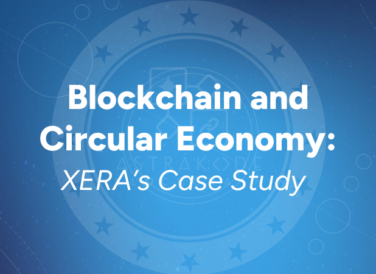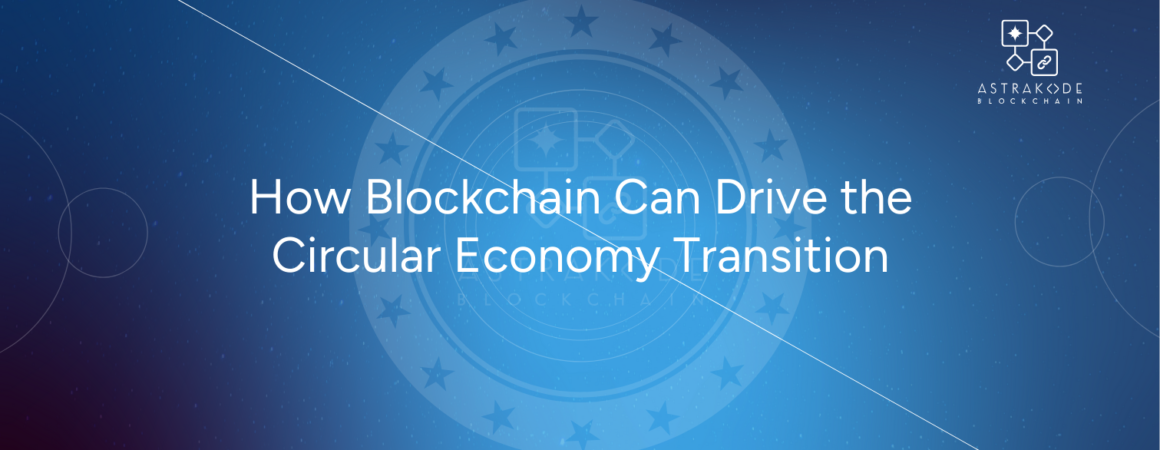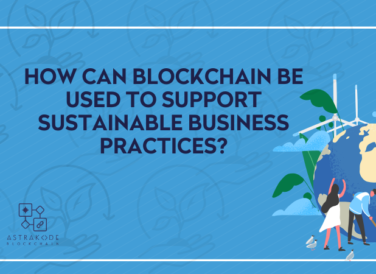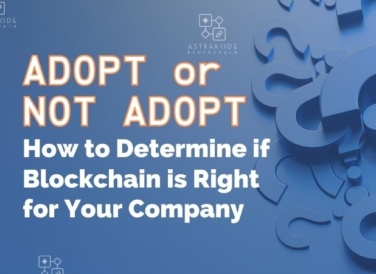
Blockchain and Circular Economy: XERA’s Case Study
In today’s fast-paced business world, staying ahead means embracing innovation and sustainability. XERA, an Italian…

A circular economy aims to eliminate waste and maximize the continuous use of resources. This system maintains the usability of materials for as long as possible, recycling them into new products at the end of their lifecycle, in contrast to the traditional linear economy which follows a ‘take, make, dispose’ model.
Recent EU regulations, including those on electronic waste management and supply chain mandates that require companies to manage social and environmental impacts, highlight the crucial role of blockchain technology. This technology is pivotal in ensuring regulatory compliance, increasing transparency, and fostering trust among consumers, regulators, and stakeholders.
In this article, we explore how blockchain technology can be an essential solution for businesses aiming to support the circular economy and a case study we take in this essential area.
Blockchain technology is uniquely positioned to drive the circular economy, particularly in areas such as sustainability and waste management. Its inherent features include:
These technological qualities make blockchain a powerful tool for companies aiming to adopt more sustainable and compliant business practices within the circular economy framework.
Blockchain technology significantly enhances the circular economy’s elements by promoting transparency, traceability, and efficiency. Here’s how blockchain is driving key practices in the circular economy:
Through these functionalities, blockchain supports the circular economy’s aim to be restorative and regenerative by design.
Read more use cases of blockchain in circular economy.
Blockchain’s potential to verify the origins and sustainability credentials of products is groundbreaking. By providing a clear, auditable trail from source to store, blockchain technology empowers consumers and companies to verify claims of sustainability and ethical production. This fosters trust and encourages consumer participation in the circular economy, as they can make purchasing decisions based on verified information.
Blockchain can catalyze behavioural change by incentivizing sustainable practices through smart contracts. These automated agreements reward actions such as recycling, responsible consumption, and environmentally friendly manufacturing processes. By directly linking sustainable actions to economic benefits, blockchain encourages a broader adoption of practices that contribute to a healthier planet.
Curious about blockchain’s potential in real-life sustainability projects? Download our hypothetical project, ‘Eco-Island 3.0’, to see how blockchain technology can revolutionize waste management.
Explore how AstraKode’s innovative approaches can be applied in practical scenarios to enhance urban environments. Get your copy now!
In today’s fast-moving market, staying at the forefront means embracing innovation and sustainability. XERA, an Italian leader in the circular economy, is renowned for repurposing outdated technology into sustainable assets. Partnering with AstraKode, XERA leverages blockchain technology to enhance its sustainable practices, boosting business transparency and trust while benefiting the environment.
In the competitive sustainability market, XERA is committed to establishing itself as a truly green company, distinct from those engaged in greenwashing—falsely claiming sustainable practices. Their focus is on efficiently managing the refurbishment and reuse of electronic devices, aiming to build trust and ensure transparency in their processes.
XERA partnered with AstraKode to implement blockchain technology, which provides an immutable ledger for tracking each step in the refurbishment process. This enhances transparency and builds trust among consumers.
Blockchain technology ensures that every part of the refurbishment process is transparent and verifiable, increasing XERA’s credibility and distinguishing its sustainability efforts from competitors.
The integration of blockchain is expected to streamline operations, reduce the need for extensive third-party verification, and strengthen customer trust by providing tangible proof of XERA’s sustainable practices. This sets a new benchmark for transparency and efficiency in the circular economy.
Read the full XERA’s Case Study.
In conclusion, blockchain technology is pivotal for resolving the challenges in implementing and supporting the circular economy. By facilitating enhanced transparency, accountability, and efficiency, blockchain is a cornerstone in the successful deployment of circular economy practices. AstraKode’s platform simplifies this integration through a low-code approach, offering tools like Network Composer and Smart Contract IDEs, which make adopting blockchain technology straightforward and accessible. Embrace the future of sustainable business by exploring AstraKode today, and leverage our tools to harness the full potential of blockchain in the circular economy.

In today’s fast-paced business world, staying ahead means embracing innovation and sustainability. XERA, an Italian…

Sustainable business practices are vital strategies that companies adopt to benefit society, the environment, and…

Blockchain technology has been a buzzword in recent years and has the potential to revolutionize…